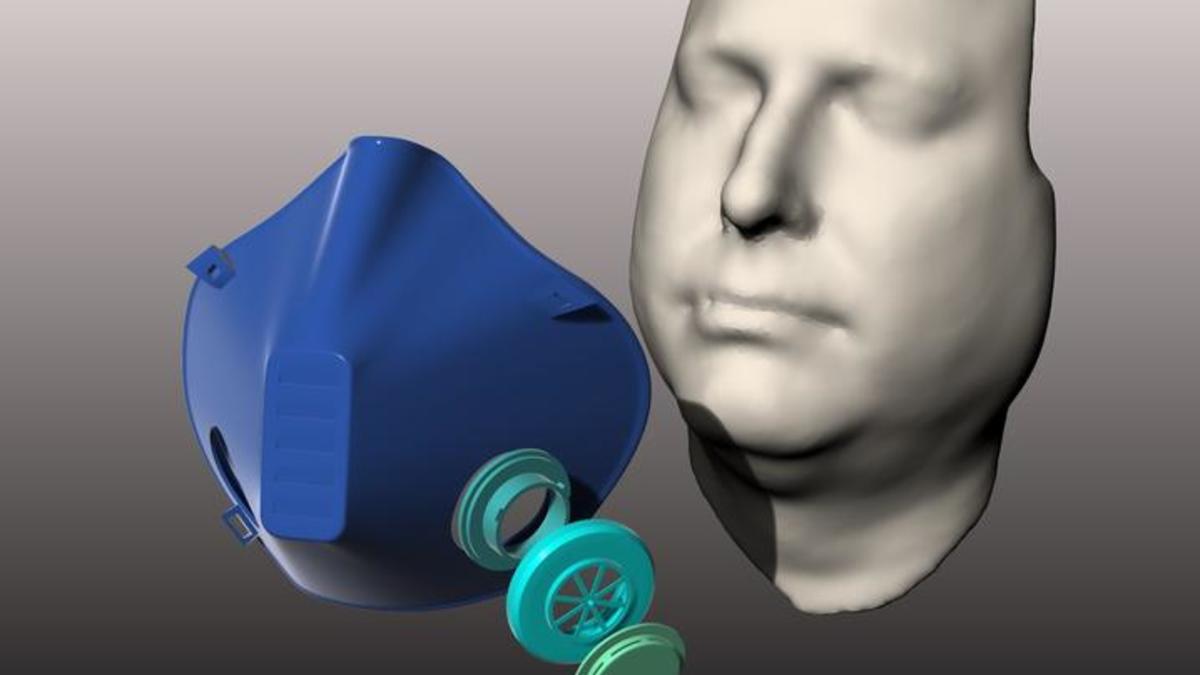By Mallory Olson and Whitney Hale
Since the COVID-19 pandemic made its way to the United States, health care professionals across the nation have been answering the call of the sick. As the numbers of patients began to mount, medical providers also came to the stark realization that they would run through the necessary supplies to keep their front-line doctors, nurses and respiratory therapists safe from the virus they were battling.
UK’s Chandler Hospital, Good Samaritan Hospital and clinics, as well as the rest of Kentucky’s health care facilities, are unfortunately not immune to this growing need for personal protection equipment (PPE), whether it be masks, shields or gloves. And, like the rest of the nation, UK HealthCare is reaching out to not only potential federal and state resources for aid but has also called on the Commonwealth for help to meet the demand
One group answering this plea is a team of artists and engineering minds led by one of UK HealthCare’s own.
Dr. Michael Winkler is a radiologist, who works at UK Gill Heart & Vascular Institute, specializing in advanced cardiovascular imagining. He's part of a team working to print these medical supplies, which are critical to the health and safety of those working on the frontline of the COVID-19 pandemic.
It's personal for Winkler.
"The country is running out of personal protection equipment, which is important to prevent not just my friends from getting sick, but my wife, too. She works as a physician," he said. "We must protect those who are risking their lives to protect others from this disease."
Winkler likes to combine his scientific expertise with his background in visual arts, which is how to he became involved with 3D imaging. He believes 3D printing helps UKHC patients understand their care and physicians refine how they deliver care to their patients.
Winkler initially made his mark at UKHC's Gill Heart & Vascular Institute by creating custom 3D printed hearts. He first worked with UK's School of Art and Visual Studies (SAVS) to transform data-rich imaging files into near-perfect replicas of a patient's heart. He considers this a useful tool in clinical, research and educational settings.
Now, Winkler is teaming up again with SAVS faculty member, Siavash Tohidi, as well as UK electrical engineering Professor Daniel Lau — this time to create PPE for health care workers.
Continuing to push the limits of the medium in the medical field, the team is using 3D scanning to make customized masks.
“Our creative design and fabrication techniques, that’s what set these masks apart,” Tohidi said. “They are very comfortable for the users to wear as they are built for their face. And using our digital fabrication resources, we have made multiple prototypes to ensure a quality design.”
The process begins with scanning a health care provider’s face with high-end 3D scanners from Seikowave, a local company co-founded by Lau.
“I’ve been studying structured light 3D scanning for 20 years. So, for me, this was just a case of pulling a scanner off the shelf. It was serendipity that Dr. Winkler, Siavash Tohidi, and I had an existing collaboration in SAVS to develop 3D-printed human body parts for visualization, simulation and training. With all the time at home, this project has allowed me to keep busy and from focusing on the whole COVID-19 situation in Kentucky and around the world,” Lau said.
Based on the scans created by Seikowave, the team then designs a mask using a variety of software to achieve the desired form. UK SAVS’ SLA (stereolithography) 3D printers are then employed to create a tangible physical mask and to add final touches and finishes to the mask to ensure a desirable surface quality. Prints of these prototypes are then outsourced to companies like EnvisionTEC, which create the masks using safe and flexible materials.
Ideally, creating a mask takes around five to six hours from scanning to having the object in hand. UK’s team already has a few prototypes and the process is one that can be easily replicated by other institutions wanting to make masks for their own health care system.
Like Winkler and Lau, Tohidi was glad his skills could be of service during this difficult time. “In situations like this, not being able to contribute is the worst feeling possible — especially when we own resources that can be put into work. We are working with UK HealthCare daily, and seeing how relentless they are in serving the community has always been a great inspiration for me. Being able to give something back is very rewarding.
“I think it is amazing that a group of individuals from various departments can get together quickly and set forward a path to solve a real-world problem. This does not happen very often, and we are trying to make this a habit here at UK.”
"Everyone should feel compelled to help," Winkler added. "Even if your contribution is hand washing and maintaining your distance from others when you're out and about, you are helping."
Weeks into the social distancing mandate, Winkler understands it can be hard to change the social norm but wants Kentuckians to know that doing so will ultimately save the lives of potentially thousands of our neighbors.
To see videos of the evolution of the team's work, watch their video playlist on YouTube.
